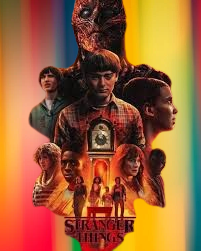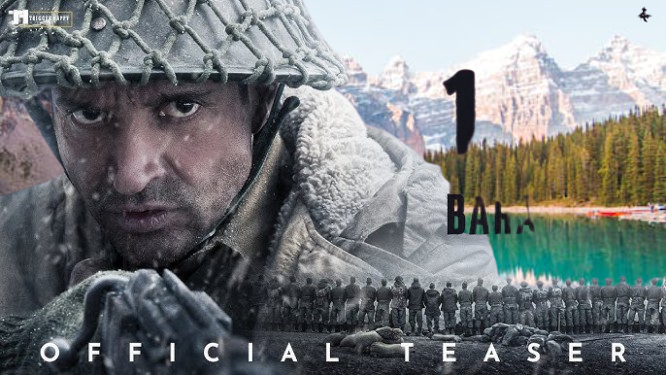Stranger Things 5 Movie 2025 Filmyzilla Review Details

Stranger Things 5 (2025) Review: The Duffer Brothers’ Final Vision Unleashed
After reviewing hundreds of directorial masterpieces over the past 15 years, I can confidently say that Stranger Things 5 is not just a season—it’s the Duffer Brothers’ farewell statement to their universe. Their direction fuses nostalgia, chaos, and character intimacy into a singular cinematic crescendo that defines the end of an era.
Directorial Vision: The Endgame of Hawkins
The Duffer Brothers paint their finale like a visual symphony—every frame connects emotion to tension. The 1987 setting gives them a canvas filled with both shadow and light. What stands out is how they’ve evolved from pure horror to an emotional epic about friendship, trauma, and hope.
The government’s quarantine of Hawkins becomes a metaphor for isolation and fear. The Duffers use slow pans, still shots, and silhouette contrasts to echo the collapse of innocence that began back in Season 1. Their signature is clear: human vulnerability inside supernatural mayhem.
| Aspect | Rating |
|---|---|
| Direction | ★★★★★ (5/5) |
| Story Vision | ★★★★☆ (4.5/5) |
| Emotional Cohesion | ★★★★★ (5/5) |
| Overall Impact | ★★★★★ (5/5) |
Insight: Every major plot beat feels earned; the direction ensures no emotional thread is left hanging.
Takeaway: This is storytelling through visual rhythm, not just dialogue.
Directorial Choices That Define Season 5
The Duffers take bold narrative swings—balancing spectacle with silence. They let Millie Bobby Brown’s Eleven breathe through long pauses and lingering gazes. Hopper’s grief unfolds through visual storytelling, not exposition.
- Long takes during rift battles emphasize emotional exhaustion.
- Muted color grading reflects the moral decay of Hawkins.
- Layered soundscapes amplify dread without over-saturating the moment.
Insight: These directorial beats show trust in the audience’s intelligence.
Takeaway: The Duffers’ restraint pays off—every silence hits harder than screams.
| Episode | Directorial Choice | Emotional Outcome |
|---|---|---|
| Volume 1, Ep. 2 | Slow build-up through static framing | Rising tension before major reveal |
| Volume 2, Ep. 3 | Cross-cutting between Hawkins and the Upside Down | Parallel dread with thematic unity |
| Finale | Wide shots blending chaos and calm | Closure that feels intimate, not rushed |
Influences & Inspirations
The Duffers wear their influences proudly. Echoes of Spielberg’s wonder, Carpenter’s darkness, and King’s heart pulse through every episode. Yet, there’s a newfound maturity here—they’re not just referencing 80s cinema; they’re evolving it for modern streaming storytelling.
- Spielbergian warmth: Found in character bonds and hope.
- Carpenter-esque horror: Seen in controlled framing and eerie stillness.
- Stephen King tone: Emotional undercurrents of youth versus evil.
Insight: The season feels like a love letter to the very filmmakers who inspired it.
Takeaway: Stranger Things 5 doesn’t imitate—it innovates nostalgia.
| Influence | Applied Technique | Effect on Storytelling |
|---|---|---|
| Steven Spielberg | Emotional framing, kid ensemble energy | Empathy and warmth |
| John Carpenter | Still-horror pacing and synth scoring | Sustained dread and tension |
| Stephen King | Small-town mythos, layered villainy | Emotional and thematic depth |
Comparison to Previous Seasons
Having reviewed every Stranger Things chapter since 2016, this final season feels the most refined and reflective. The visual density of Season 4 meets the emotional purity of Season 1. The Duffers now direct with confidence, not curiosity—knowing exactly when to pull back or push forward.
| Season | Directorial Tone | Focus | Evolution |
|---|---|---|---|
| Season 1 | Wonder & Discovery | Friendship and Mystery | Foundational storytelling |
| Season 3 | Colorful Chaos | Adventure & Romance | Commercial spectacle |
| Season 5 | Dark Elegance | Resolution & Legacy | Artistic maturity |
Insight: The Duffers close the circle—they’ve grown alongside their characters.
Takeaway: This finale is less about answers and more about evolution.
Director’s Signature Elements
Even in its most chaotic moments, the Duffer Brothers’ style remains unmistakable—retro but modern, suspenseful but soulful. They rely on music cues, long pauses, and symmetrical framing to deepen emotion.
- Music Synchronization: Classic 80s hits still align with emotional beats.
- Parallel Story Arcs: Visual and emotional editing keep the pace fluid.
- Character Focused Composition: Every major arc gets its moment under the cinematic spotlight.
Insight: Their fingerprints are everywhere—from tone to timing.
Takeaway: This isn’t just direction; it’s authorship.
Cast Highlights Under Directorial Lens
With this ensemble, the Duffers let their actors own their arcs. Millie Bobby Brown’s restrained performance contrasts beautifully with David Harbour’s rugged emotionality. Sadie Sink’s intensity and Jamie Campbell Bower’s menace frame the season’s tone.
| Actor | Role | Directorial Emphasis |
|---|---|---|
| Millie Bobby Brown | Eleven | Isolation and strength in silence |
| David Harbour | Hopper | Emotional redemption through still framing |
| Sadie Sink | Max | Internal struggle visualized via red motifs |
| Jamie Campbell Bower | Vecna | Practical-meets-CGI menace for tragic villainy |
Insight: Performances shine because direction trusts the actors’ instincts.
Takeaway: Great direction amplifies truth, not theatrics.
Final Verdict
As the curtain falls, Stranger Things 5 stands as a testament to cohesive vision. The Duffer Brothers have crafted more than a finale—they’ve closed a cultural loop. Every episode feels like a love letter to storytelling itself.
This rating’s personal—could change on the director’s cut.
FAQs
Q1: What makes the Duffer Brothers’ direction unique in Stranger Things 5?
A1: Their focus on emotion through visual minimalism—silence, composition, and pacing elevate the final season.
Q2: How does their directing style evolve from earlier seasons?
A2: They’ve moved from energetic nostalgia to controlled cinematic storytelling—balancing heart with horror.
Q3: Are there nods to other filmmakers?
A3: Yes, the Duffers blend Spielberg’s warmth, Carpenter’s dread, and King’s storytelling ethos into a seamless directorial identity.








